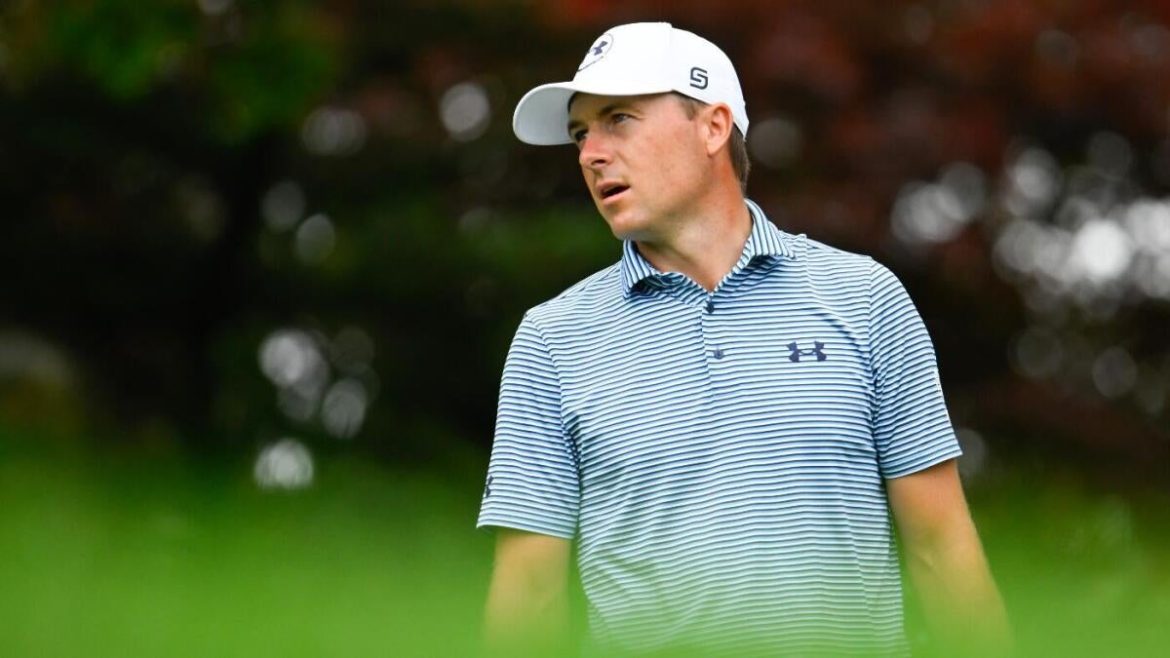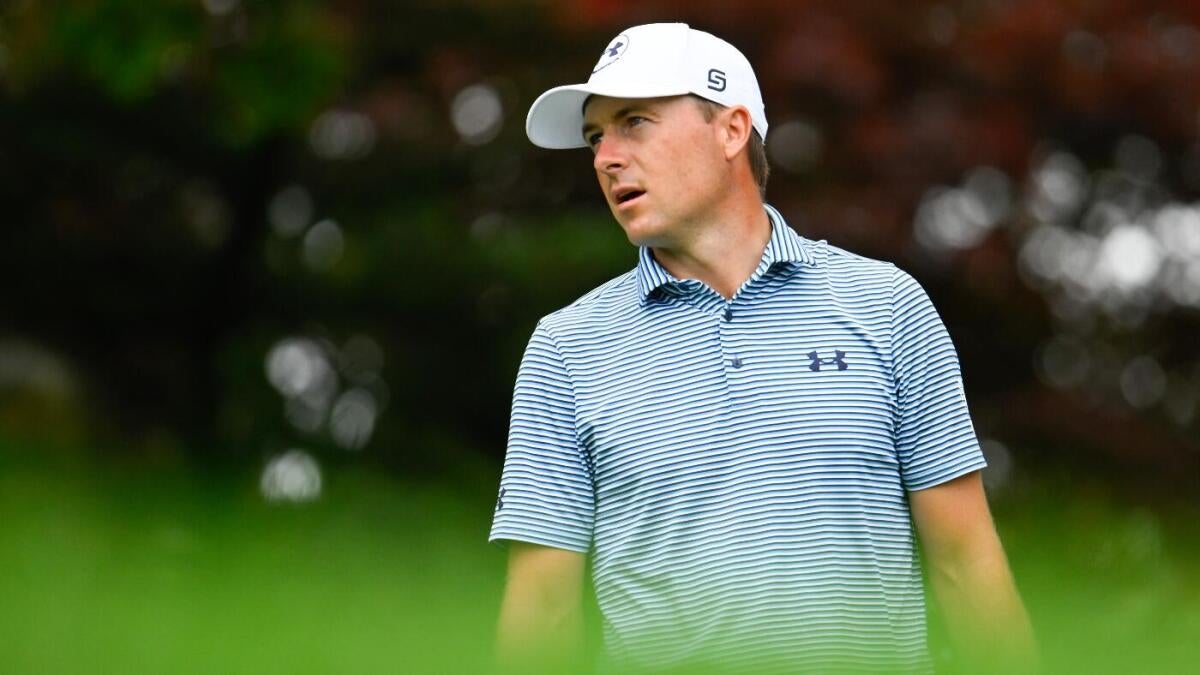A Sudden Halt: Analyzing Jordan Spieth’s Withdrawal from the Travelers Championship
The golfing world was taken aback during the opening round of the 2025 Travelers Championship as Jordan Spieth, a celebrated figure in the sport, was forced to withdraw. This wasn’t merely a case of a bad day on the course; it marked a significant and unprecedented moment in Spieth’s professional career – his first withdrawal from a PGA Tour event in 297 starts. The incident, stemming from a neck and upper back injury, has sparked considerable discussion and concern regarding the player’s condition and potential impact on his season.
An Impressive Streak Broken
Spieth’s longevity and consistency on the PGA Tour are well-documented. He’s a 13-time winner, including a victory at the Travelers Championship in 2017, and consistently ranks among the top players globally. The fact that he had completed every tournament he entered for nearly a decade speaks volumes about his dedication and resilience. This unbroken streak, ending abruptly at TPC River Highlands, underscores the severity of the injury and the difficult decision he faced. Reports indicate the issue wasn’t a chronic condition, but rather a sudden onset of tightness, initially felt during his warm-up on the practice range. He attempted to play through the discomfort, but it rapidly worsened, ultimately forcing him to concede the round.
The Nature of the Injury: From Neck to Shoulder
Initial reports pointed to a neck/upper back injury, but further details revealed a more specific issue: tightness in his shoulder blade. Spieth himself suggested the injury may have been triggered by sleeping in an awkward position, highlighting the unpredictable nature of physical ailments. The pain escalated to the point where he was unable to complete his swing without experiencing significant discomfort. Golf Channel cameras captured Spieth receiving treatment on the course, a clear indication of the distress he was experiencing. The suddenness of the injury is particularly noteworthy, as Spieth had reported feeling “great” during a gym session prior to the tournament.
Impact on a Promising Season
The withdrawal comes at a potentially inopportune moment for Spieth. He was enjoying a strong season, with four top-10 finishes already under his belt. The Travelers Championship, a Signature Event, represented a valuable opportunity to further solidify his position among the tour’s elite. While the injury doesn’t necessarily jeopardize his long-term prospects, it undoubtedly disrupts his momentum and raises questions about his preparation for upcoming major championships, particularly The Open. The timing is especially concerning as players begin to fine-tune their games for the challenges of links golf.
A Display of Sportsmanship
Despite the disappointment of being forced to withdraw, Spieth demonstrated commendable sportsmanship. Reports indicate he personally apologized to his playing partner, Luke Clanton, for having to abandon the round. This gesture, while seemingly small, speaks to Spieth’s character and respect for his fellow competitors. It highlights his understanding that golf is not just an individual pursuit, but a game built on camaraderie and mutual respect.
The Broader Context: Injuries on Tour
Spieth’s situation isn’t isolated. The demanding physical nature of professional golf, coupled with a grueling travel schedule, often leads to injuries. Jon Rahm’s recent withdrawal from the US Open due to a foot infection serves as a stark reminder of the vulnerabilities faced by even the most accomplished athletes. Patrick Cantlay’s history with back injuries further illustrates the toll the sport can take on the body. These instances underscore the importance of preventative care, proper conditioning, and the need for players to prioritize their physical well-being.
The Significance of the First Withdrawal
The fact that this was Spieth’s first withdrawal in 297 starts isn’t simply a statistical anomaly. It reflects a level of dedication and toughness rarely seen in professional sports. Players withdraw from events for various reasons – illness, personal emergencies, or, as in Spieth’s case, injury. However, the sheer number of consecutive starts completed before this incident speaks to his unwavering commitment to the game and his refusal to give in to discomfort. It’s a testament to his professionalism and a defining characteristic of his career.
Looking Ahead: Recovery and Return
The immediate focus for Spieth will be on recovery and rehabilitation. The severity of the injury and the timeline for his return remain uncertain. He will undoubtedly work closely with his medical team to determine the best course of action, prioritizing a full recovery over a hasty return to competition. The golfing world will be watching closely, hoping for a swift and complete recovery for one of the sport’s most popular and talented players. His absence will be felt on the tour, and his return will be eagerly anticipated. The incident serves as a poignant reminder of the physical demands of professional golf and the fragility of even the most resilient athletes.





